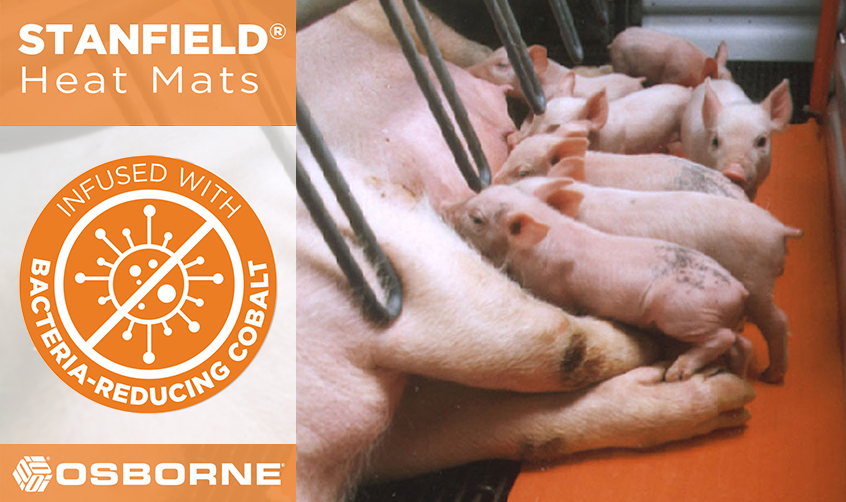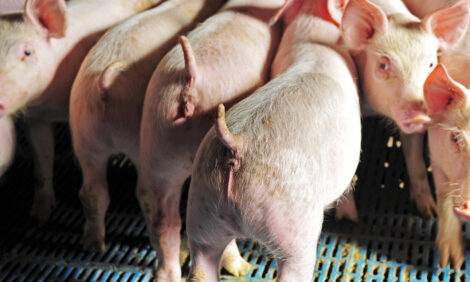



UK & Denmark Will Meet Stall Ban but What About the Rest of EU?
EU ANALYSIS - The Danish pig industry will be ready to comply with the EU ban on traditional sow stalls when it comes into force in 2013, writes Chris Harris.Following an item in ThePigSite newsletter on Monday (28 November), which reported a British Pig Executive Report expressing concerns that many European countries would not be able to meet the new conditions on time and which said that even Denmark may have problems complying with the EU ban, John Howard, Market Director (UK) at the Danish Agriculture & Food Council said that the Danish industry will be ready.
Mr Howard said: "Their report regarding the situation in Denmark was based on a single report in the Danish media a few months ago that "nearly one-third of producers will not be able to comply with the new welfare requirements."
"The latest research (undertaken 15 months ago in June 2010) indicated that 70 per cent of Danish producers then complied with the new EU rules, and the remainder either had plans in place to adapt their production to the new rules or would cease producing prior to their implementation.
"We simply cannot envisage a situation where Danish producers will not comply with all aspects of national legislation in Denmark, which include a requirement that the confinement of pregnant sows is banned from four weeks after service after January 2013, in full compliance with the EU regulations and, inevitably, some producers will decide to exit the industry during 2012 rather than make the necessary investments to comply with the new rules.
"Independently monitored assurance schemes, covering all pig suppliers to Danish Crown and Tican, require full compliance with all relevant legislation, in addition to more demanding requirements regarding welfare, safety and environmental standards.
"The Danish authorities also carry out an annual programme of 'unannounced audits' to pig producers to ensure full compliance with all aspects of welfare legislation in Denmark.
"We raised this matter with BPEX following the publication of their Imports Report and they accepted that it may not have fully represented the Danish position in this area."
Mr Howard added that the Danish industry is "110 per cent behind BPEX's stance on opposing any derogation.
He said Denmark expects every EU country to introduce the new rules from January 2013.
"The industry has had well over a decade to prepare for these changes," he said.
While, Denmark has confirmed that it will be able to meet the new requirements and the UK has banned stalls and tethers since 1999, there is still a general feeling within the EU pig industry that many countries are not going to be able to meet the regulations.
For Denmark, the hold ups for not getting to a state of compliance earlier have been bureaucratic planning regulations and difficulties in getting money from banks in the recent and on-going economic climate.
The planning regulation problems were overcome by a few alterations that allowed changes to present pig houses internally so long as there were now changes externally.
For the Danish farmers, however, the process has been costly and the changes in existing pig houses, without the ability to extend them has meant a reduction in the numbers of sows and hence size of herds and potential profitability.
For some this restriction together with the lack of banking finance will have meant they will or have left the industry.
These are the problems that are being faced across the European industry and which the UK industry faced up to in 1999.
Now, it seems the Danes and the British are joining forces to oppose any derogation and both - together with the European Commission - will be monitoring how the ban on battery cages and the introduction of enriched housing for laying hens in the egg industry, will be enforced in a month's time.
The situation is very similar and the authorities might be able to learn some lessons for the implementation of the pig industry proposals a year later.
For the rest of the EU to fall into line within the next year, a lot of money ahs still to be spent by farmers and a lot of building work has to be done. This in turn may force many farmers out of the business.
If the European Commission kowtows to those seeking a derogation and allows production with traditional stalls in some countries, it will be giving licence to a two tier industry and giving an unfair advantage to those, who have not carried out the changes.
It appears that several countries will not meet the requirements and if this is the case, what will the European Commission do about the export of, perhaps, some niche market products.
Would they dare to ban exports of products such as Parma Ham, Serrano Ham, certain salamis and sausages that all may have a protected status within the EU, because the industry in the country has not met the ban on traditional stalls?
A battle royal is likely to follow.








